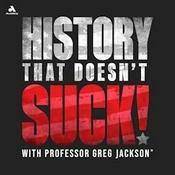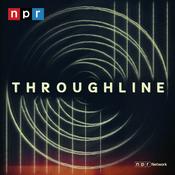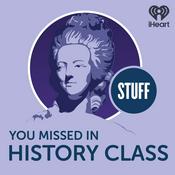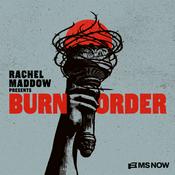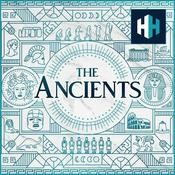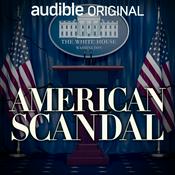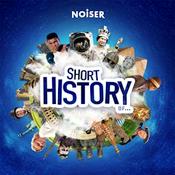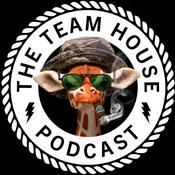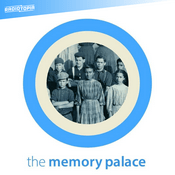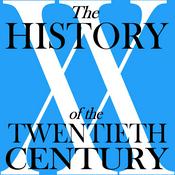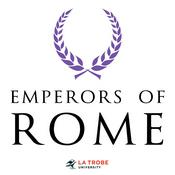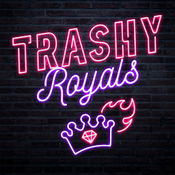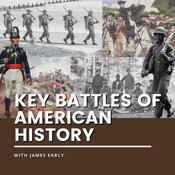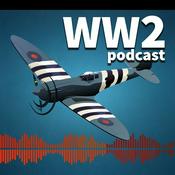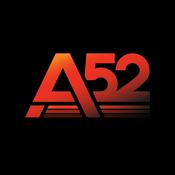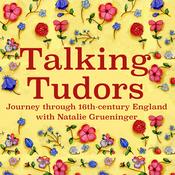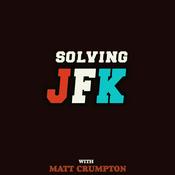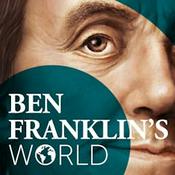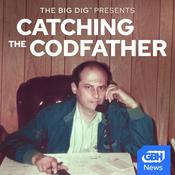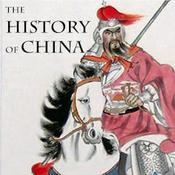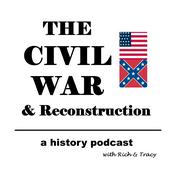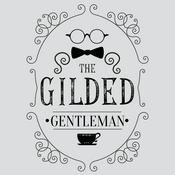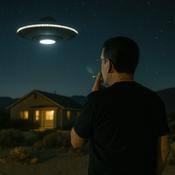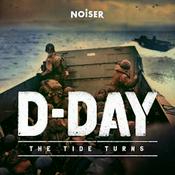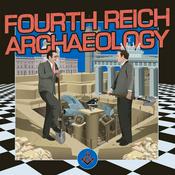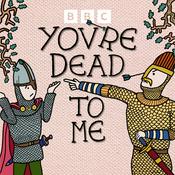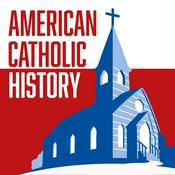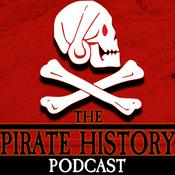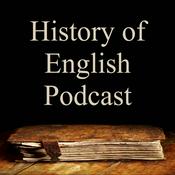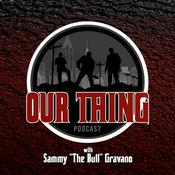546 episodes
- Join us for our third annual Taco Tuesday, But On A Saturday, at the Seminary. Come alone or bring friends, it doesn't matter, just come out and cure your cabin fever with us!
We provide the tacos and you BYOB.
Get your tickets here: https://www.seminaryridgemuseum.org/events/tacos-and-trivia-0221 Ask A Gettysburg Guide #120- Civil War Railroads with LBG Rich Kohr (AUDIO ONLY)
1/22/2026 | 2h 11 mins."Ask A Gettysburg Guide #120 - Civil War Railroads," features Licensed Battlefield Guide Rich Kohr discussing the crucial role of railroads during the American Civil War.
Here are the key takeaways from the discussion:
Railroads' Crucial Role (6:32): The Civil War was the first major conflict where railroads were essential for supplying armies, moving troops, and transporting equipment on a massive scale.
Rapid Expansion Before the War (7:23): In 1840, the U.S. had 3,000 miles of railroad.
By 1850, it grew to 9,000 miles.
By 1860, it reached 30,000 miles, with a significant disparity between North and South: the North had 21,000 miles, while the South had 9,000 miles.
Differences Between Northern and Southern Railroads (8:09): Southern Railroads: Primarily "market railroads" (8:59), designed to transport commodities like cotton, tobacco, and sugar from farms to ports, often with shorter mileage (9:37).
Northern Railroads: More focused on connecting cities (9:31) and commerce (11:55), with some relying heavily on passenger business (12:05).
Impact on Manpower (12:20): The railroad boom in the 1850s influenced the available manpower for the war. Southern railroads largely used slave labor (12:40), while Northern railroad construction brought in European immigrants, significantly increasing the white male population of military age in the North by 1860 (12:52-13:32).
Gauge Issues (14:52): Railroads in 1860 were not standardized in terms of "gauge" (the distance between rails), with about a dozen different gauges in use (15:42). This often meant freight and passengers had to be transferred between different rail lines, as railroads frequently didn't physically connect (21:14-21:41).
Southern Reluctance to Modernize (27:59): Despite the recognized need to connect railroads for military purposes, the Confederate legislature debated extensively in 1861, with arguments centering on military necessity (29:11), funding (29:36), and whether connections should be temporary or permanent (30:06). A significant argument against expansion was the belief that the war would be over quickly (31:16).
Protection of Railroads (32:59): While initially neglected by figures like Secretary of War Cameron due to personal financial interests (33:11), later in the war, the Union built blockhouses and established a "railroad division" to protect vital lines like the Baltimore and Ohio Railroad (33:40-33:51).
Compensation and Management (34:04): The U.S. government compensated private railroads for their use by offering higher rates for government shipments (34:49). The North also consistently appointed experienced railroad managers to positions of authority within the War Department, which was a significant advantage (35:09-35:26).
Train Speeds (35:34): Wood-burning freight trains typically traveled around 15-20 mph (35:41), while passenger trains could reach 30-40 mph (35:46). Coal-burning locomotives, which were beginning to appear, offered higher speeds and would become more prevalent after the Civil War (36:02).
BOOKS FOR FURTHER LEARNING
General Theory for Bridge Construction - Herman Haupt
Reminiscences of General Herman Haupt - Herman Haupt
Don't forget to support the show by becoming a Patron at www.patreon.com/addressinggettysburg or make a tax-deductible contribution to the budgets of our history video projects at www.dhpioneers.com- Grab your hot cocoa and ugly Christmas sweater and cozy up to an insightful and fun conversation with Uncle JD. We cover a bunch of topics in this conversation. Some who have already heard it said that "it flows like wine." Have a Merry Christmas and thanks for your support for @TheHistoryUnderground and @addressinggettysburg in 2025.
Ask A Gettysburg Guide #119- Civil War Myths and Gettysburg Interpretation with Garry Adelman
12/19/2025 | 2h 14 mins.It's the end of the year and you know what that means. It's time for our end-of-year special Ask A Gettysburg Guide with Garry Adelman. This year, Garry is talking about Civil War myths and Gettysburg Interpretation. How do you dispel the myths that many are so desperate to believe are true while giving a tour at Gettysburg (or anywhere else, for that matter). We want to hear from you! What's your favorite myth? What myth do you have trouble letting go of? Is there a "fact" that you've always heard repeated but something about it just doesn't sit right with you making you suspect that it might be a myth? Did you like Mikey B's performance as Bucky Beaver in our commercial? Whatever you want to ask or share, we want to hear it. Call 717-420-1978 to ask Garry directly OR Superchats of $10.00 or more will rise above the din in the comment section and we will read it on the air. As always, these shows are made possible by our Patrons at www.patreon.com/addressinggettysburg AND/OR a tax deductible donation to the Digital History Pioneers Foundation at www.dhpioneers.com Thank you and Happy Holidays! See you in 2026- Rae and Mark Davis are historians/presenters who give talks on Civil War Surgeon Jonathan Letterman, the "Father of Modern Military Medicine," known for revolutionizing battlefield care with organized ambulance corps and triage systems, a topic they've presented on at historical venues like the Gold Hill Hotel & Saloon. Their presentations highlight Letterman's innovations, such as the triage system and field hospitals, which are still relevant in modern emergency medicine.
Their Work and Expertise
Lectures and Presentations: The Davises give presentations at various historical venues, discussing how Letterman's Civil War achievements continue to influence modern civilian emergency medicine.
Exhibits: Their talks often feature displays of original and reproduction Civil War medical instruments, medicines, and weaponry.
Documentary: They are currently producing a documentary film about Surgeon Letterman's life and impact.
Background: Rae Davis has a B.A. in history and extensive experience in Civil War living history groups, while Mark Davis has a degree in Anthropology; both are long-time residents of Calaveras County, California. About Jonathan Letterman Jonathan Letterman (1824–1872) was the Medical Director of the Army of the Potomac during the American Civil War. He implemented groundbreaking changes to the medical system that saved countless lives, including: Establishing the first organized ambulance corps. Developing a functional field hospital system and a method of triage for casualties. Pioneering hygiene and diet standards to improve troop health and readiness. His system for battlefield care remains the foundation for modern military and emergency medical services. After the war, Letterman moved to San Francisco, where he served as the chief coroner. A large military hospital at the Presidio in San Francisco was later named Letterman General Hospital in his honor.
This episode, and all of our work, is made possible by our Patrons. Become one today and make us work more! www.patreon.com/addressinggettysburg
More History podcasts
Trending History podcasts
About Addressing Gettysburg
As seen on NBC's TODAY Show. Gettysburg's Flagship podcast dedicated to telling the stories of Gettysburg. The show has taken on a few different formats.
1. The Narrative episodes: Tell the history of the Gettysburg Campaign starting with the battle of Antietam, and going through the Battle of Gettysburg and beyond. These are researched and written with the help of local historians and will feature original music, and guest voiceovers.
2. Ask a Gettysburg Guide: We host a variety of different Licensed Battlefield Guides and ask them questions (submitted by our Patreon Patrons) about the Battle of Gettysburg. If you have a question you'd like answered, please become a Patron at www.patreon.com/addressinggettysburg
3. Gettysburg NPS Winter Lecture Series: We record as many Winter Lectures as we are able to. Those who can't attend these lectures will be able to hear these amazing talks with some of the best authors, Rangers, and Guides Gettysburg has to offer.
4. Premium Content: The premium content will take many forms. The content can be accessed by being a Patreon supporter. If you are interested in supporting the podcast and accessing this great content visit www.Patreon.com/addressinggettysburg
Thank You for listening.
Podcast websiteListen to Addressing Gettysburg, History That Doesn't Suck and many other podcasts from around the world with the radio.net app
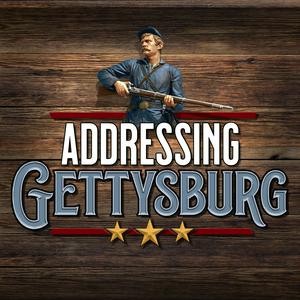
Get the free radio.net app
- Stations and podcasts to bookmark
- Stream via Wi-Fi or Bluetooth
- Supports Carplay & Android Auto
- Many other app features
Get the free radio.net app
- Stations and podcasts to bookmark
- Stream via Wi-Fi or Bluetooth
- Supports Carplay & Android Auto
- Many other app features


Addressing Gettysburg
Scan code,
download the app,
start listening.
download the app,
start listening.

